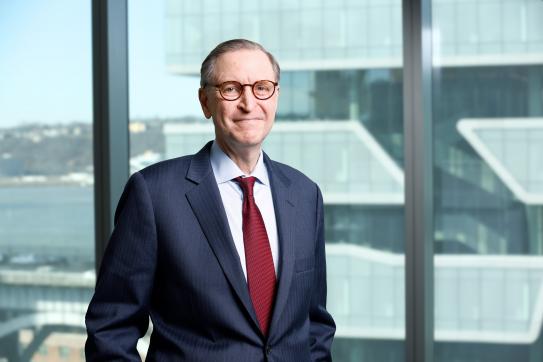Following the release of Friday’s jobs report for January, which showed U.S. employers added a much larger-than-expected 517,000 jobs in the first month of the year, Columbia Business School Dean Emeritus R. Glenn Hubbard appeared on Bloomberg Television to discuss the jobs data and share his take on the state of the economy.
“I thought we would see an upside surprise, and nothing like this, I confess,” he said. “It tells me the jobs market is much more robust than markets had thought, and certainly [it’s] a worry for the Federal Reserve.”
“We are underestimating how hard it is to forecast a recovery from COVID as we change the mix of consuming goods and services, and how firms adjust; how industries adjust.”
On the current state of the economy, Hubbard said there are two factors at play:
“One is the hangover from excessive aggregate demand stimulus,” he said. “We're also seeing a lot of adjustment as the economy comes out of the COVID pandemic: the goods boom and now a recovery in services, which are very labor intensive. So I think when people forecast jobs they have to do so at a more micro level given both of those factors, and I think the job market is likely to remain hot, which poses a real challenge for the Fed.”
On the path ahead for the Federal Reserve, Hubbard said:
“While the Fed has adjusted, one can hardly describe monetary policy as overly restrictive given where inflation is, so I think there are two challenges for the Fed: one is figuring out how high [rates should go], and I agree the Fed is not likely to revert to very large rate increases, so [expect] more gradual rate increases, probably into the [5 percent area]. And they may have to hold [rates at that level] for longer than market participants think. The Fed, of course, has been signaling that, but the market doesn't believe it.”
“We obviously have a very robust underlying economy, giving the Fed some room to move. On the other hand, the possibility of a policy error here is quite significant. So I think this is a tough moment for the Fed.”
“Milton Friedman taught us years ago about the long and variable lags of monetary policy, so there’s reason to be cautious.”
On productivity:
“I'm optimistic about productivity growth in the U.S., given our technological advances, and now it’s penetrating through. I’m also optimistic that the recovery from COVID is leading to some reallocations that may raise productivity. That said, of course, we've seen a lot of productivity fluctuations—both positive and negative—in recent years. And one swallow does not a spring make.”
Watch Professor Hubbard's appearance on Friday morning's Bloomberg Surveillance.
Dean Emeritus R. Glenn Hubbard is the Russell L. Carson Professor of Finance and Economics at Columbia Business School.
